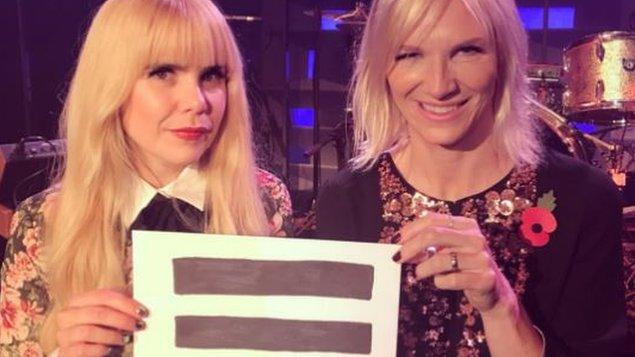The all-female radio station that helped 'pave the way' for equality
- Published
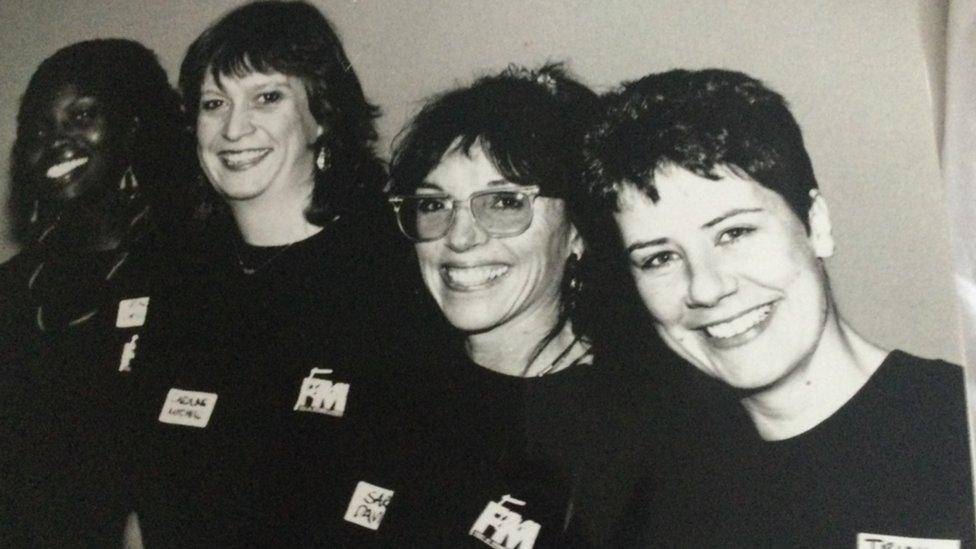
Trish Caverly (right) was a founding member of the Fem FM project
Broadcasting from the UK's first all-female radio station, the atmosphere was "electric" as women took over the airwaves, a remarkable feat when you think during her childhood many women were still viewed as "husband substitutes", one founding station member recalls.
Fem FM launched as a project in 1992, on International Women's Day, and was broadcast for eight days from a studio in the centre of Bristol.
Since then it has organised two further workshops, paving the way for more women to take up space behind the microphone with confidence.
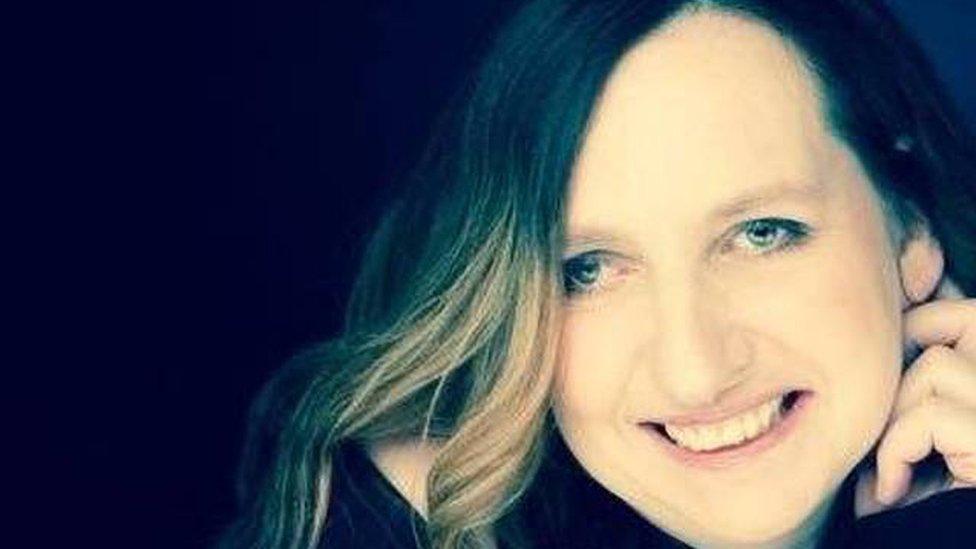
Miranda Rae said the group's aim was to address "the lack of equality" in radio
Radio presenter and producer Miranda Rae comes from the station's first generation of women.
Back then she said her lifetime's ambition was to become an actress, but she was turned down for the training on account of being blind in one eye.
"At that time they wouldn't have women of colour, or people with disabilities in the industry."
Instead she was advised her voice would be great for radio, but she remained apprehensive as she thought presenting was not something she would be able to do as a woman.
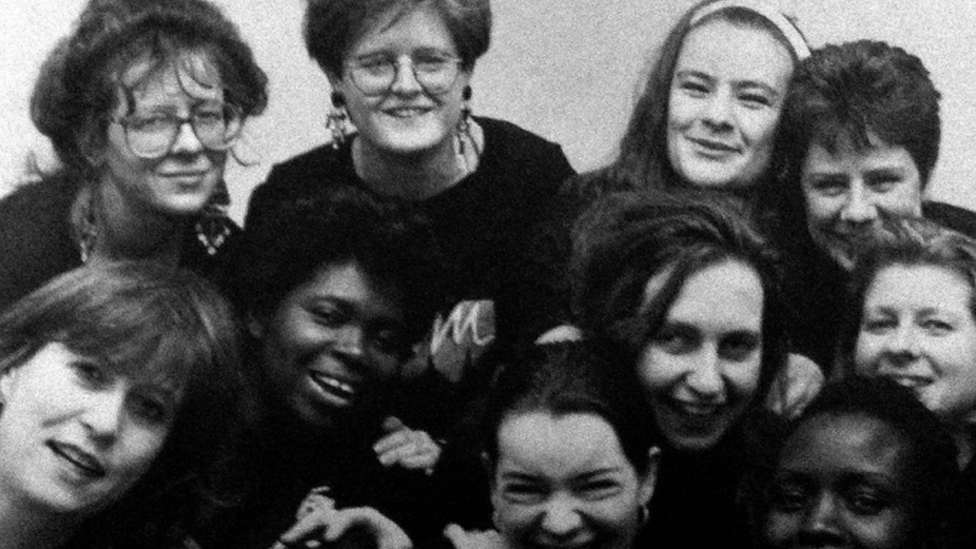
The original Fem FM radio shows have been documented in the Bristol Archive
"When we started Fem FM the vibe was just incredible, it was electric.
"Nothing like this had been done before."
Ms Rae joined Trish Caverly, Caroline Mitchell and a core team of about 13 women when she was 18-years-old to set up Fem FM.
She went on to work for BBC R4 and R5 and Radio For The People, the first UK pirate radio station to gain a legal licence in 1990.
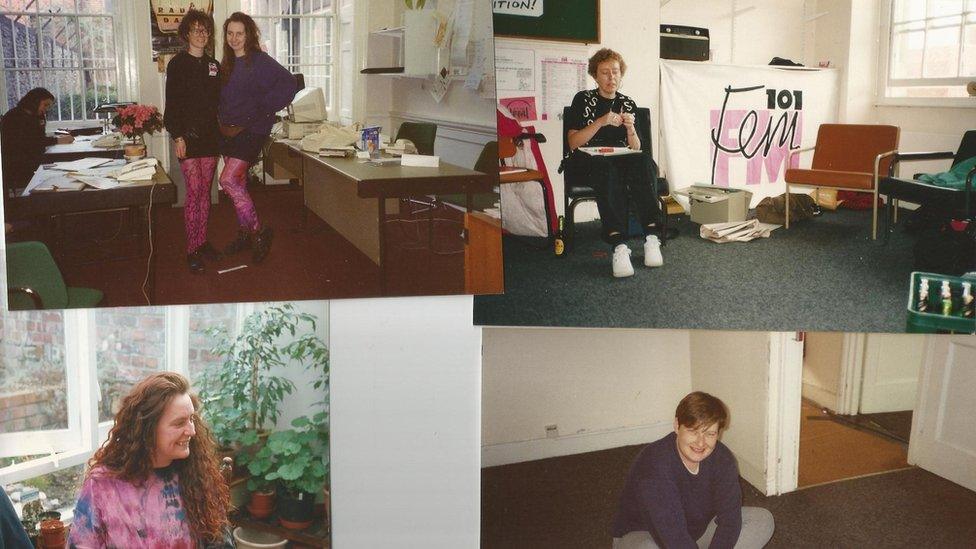
More than 200 women took part in the first project alongside the core members that helped to set it up
"They didn't have women on the radio in the 1970s because they were thought to be husband substitutes. They were apparently supposed to just be house wives.
"We felt that misbalance was still there.
"It wasn't just about being a female radio station, it was about the type of programming because, there just wasn't programming aimed at women.
"So Fem FM was really different and unique," she added.
Ms Rae now runs Sound Women Bristol, another initiative that empowers women looking to gain radio skills.
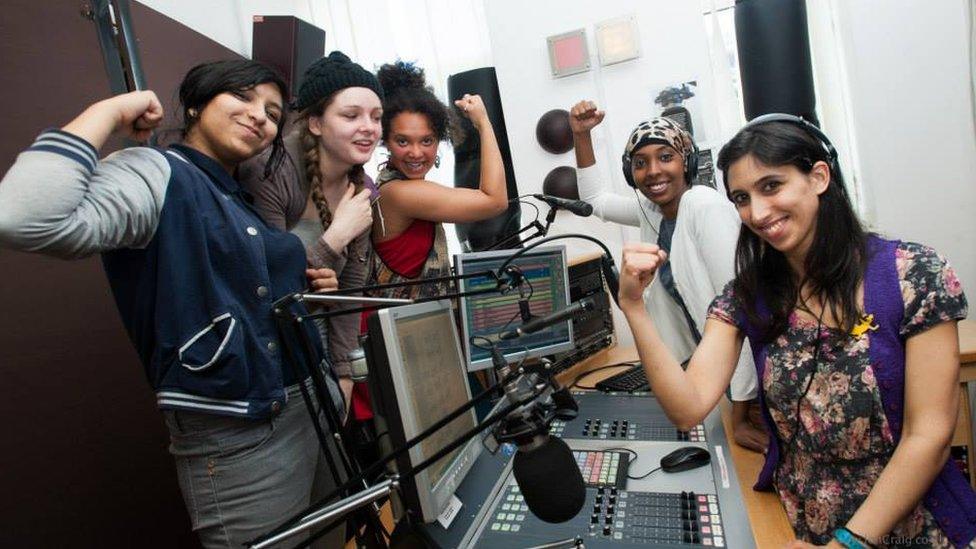
Ms Ketibuah-Foley (centre) said the project helped her "gain confidence"
Broadcast journalist Jasmine Ketibuah-Foley, took part in Fem FM's second set of workshops in 2015.
She said never "in a million years" did she imagine she would go on to become a radio presenter for Bristol community radio station, Ujima Radio CIC.
"At the time, I had just come out of university feeling unsure of what to do next when my friend suggested I sign up for the project.
"I knew I had a passion to tell people's stories, but I wasn't sure where to direct it.
"After the first session I knew exactly what I wanted to do and felt so supported by the women and other participants.
"It kind of made me feel safe.
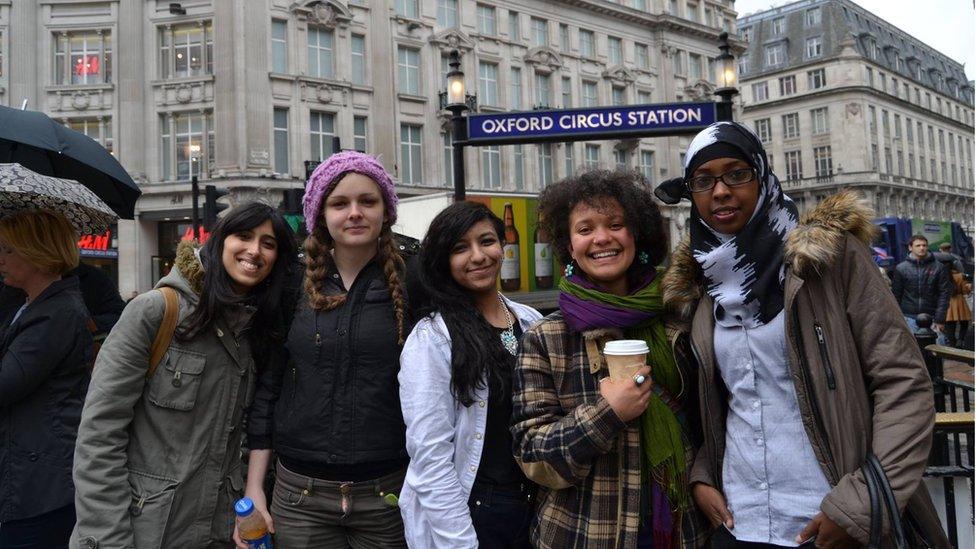
The second generation of Fem FM women went to visit the BBC in London to meet radio presenters such as Adele Roberts
"There's definitely something special that happens when you encourage women to support each other, especially in an industry that has historically favoured men.
"It gave us a fire in our bellies to just go for it."
Ms Ketibuah-Foley went on to present and produce for Ujima Radio for four years. She then joined the BBC News Online team as a journalist.
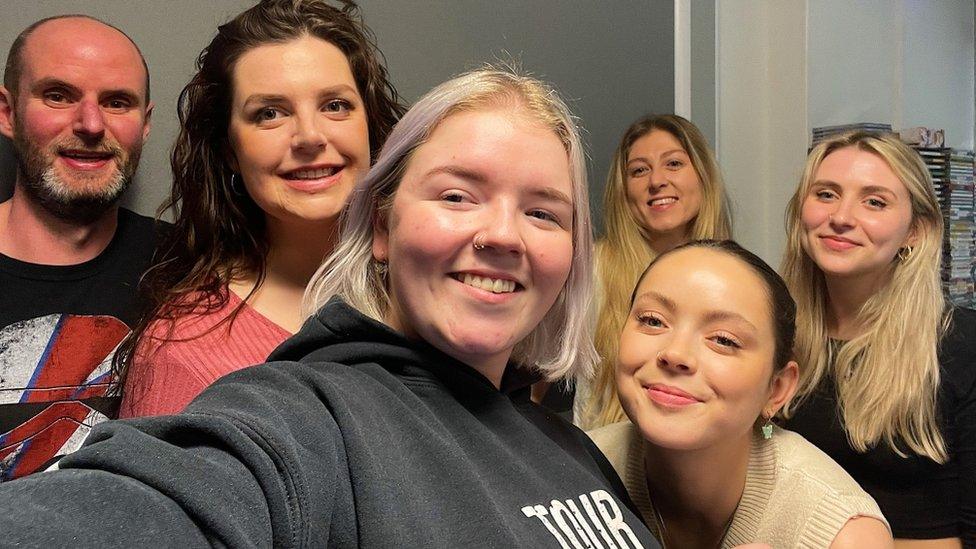
Miss Attridge (centre) said she was "really excited" to be part of the the Fem FM third generation
Sony award-winning radio producer Sue Clark and BBC World Service presenter DJ Ritu are just a few of the people who came up through the Fem FM project and went on to have successful broadcasting careers.
Now in its third iteration, the Fem FM's founders continue to inspire more women to follow in their footsteps.
University of the West of England media student Edith Attridge, has been taking part in radio workshops and has helped to produce a radio documentary about the history of Fem FM.
"It has been inspiring for me. What they did was so game-changing for women looking to go into radio," she said.
"Women in the past have made this space for us."
She said it was dangerous to think because "feminism is everywhere, we don't need to think about women", because we are building on the legacy of the women who came before us.
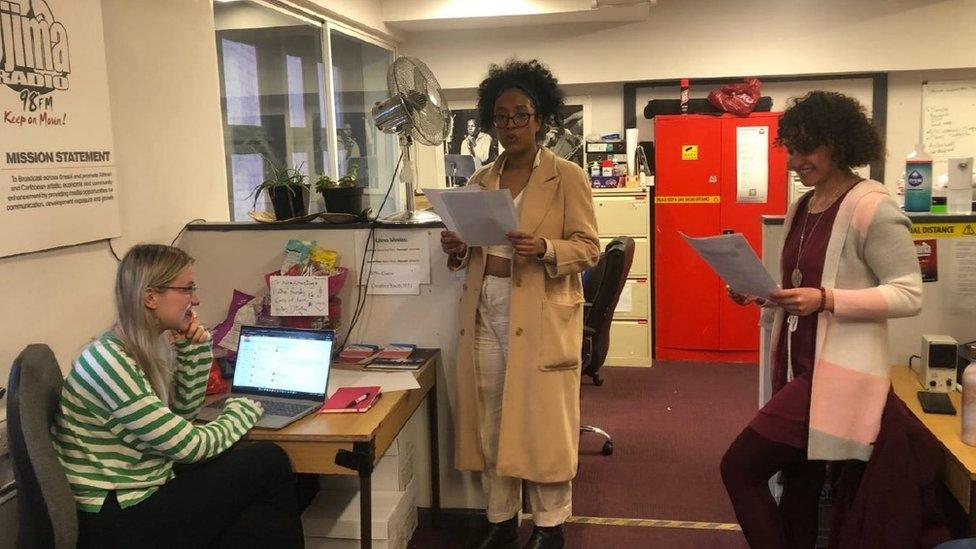
Miss Attridge helped to produce the Fem FM radio documentary for International Women's Day
Since Fem FM was founded, she said she felt there had been a "massive change" for women in the industry who were gaining recognition for their talent and skills.
"I think women were becoming more frustrated that they weren't getting slots on the radio, pirate radio started coming out, and women involved in that were getting sick and tired of having to do their radio in secret.
"They weren't getting the recognition they deserved until it got to a point where enough was enough.
"It was time to show the world what they were doing."
The Fem FM radio documentary will be broadcast on community radio stations across the UK for International Women's Day.

Follow BBC West on Facebook, external, Twitter, external and Instagram, external. Send your story ideas to: bristol@bbc.co.uk , external
- Published4 December 2021
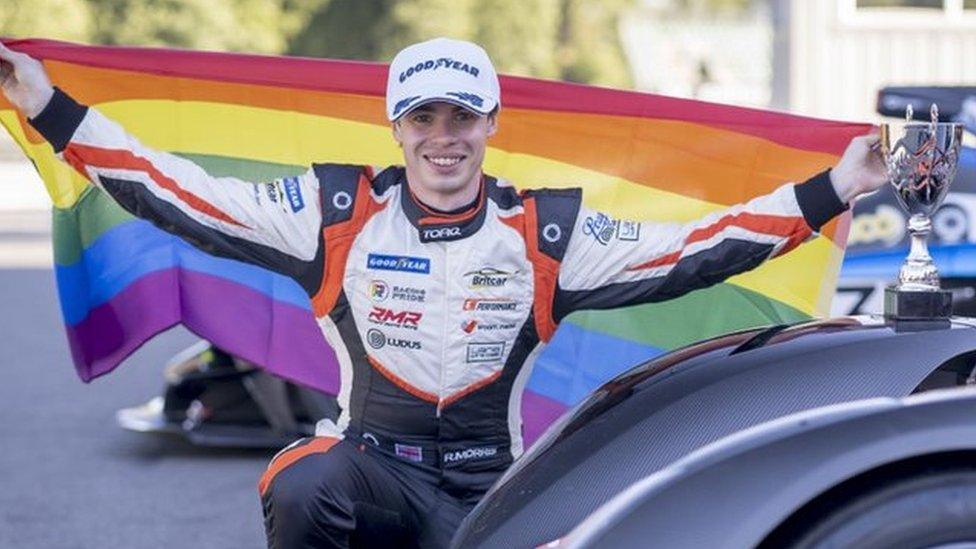
- Published1 December 2020
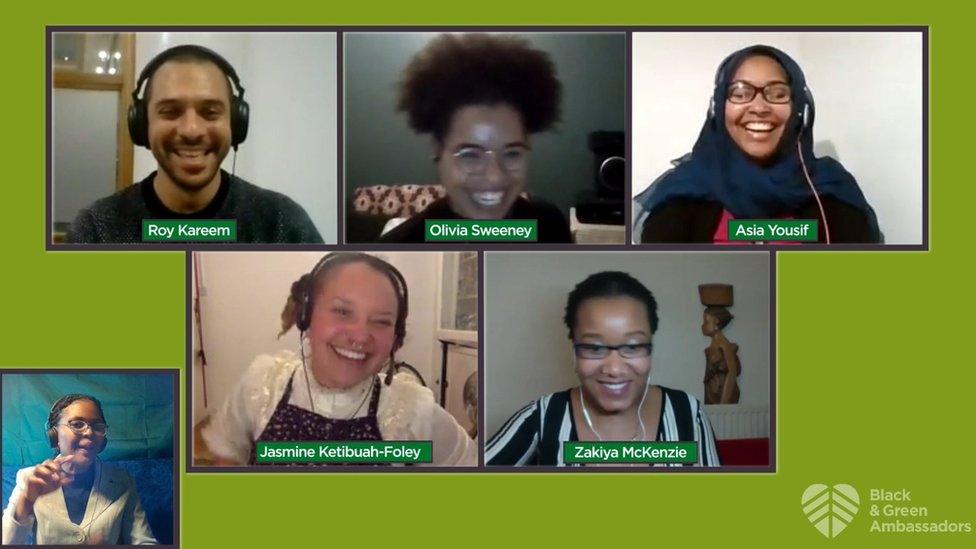
- Published8 November 2019
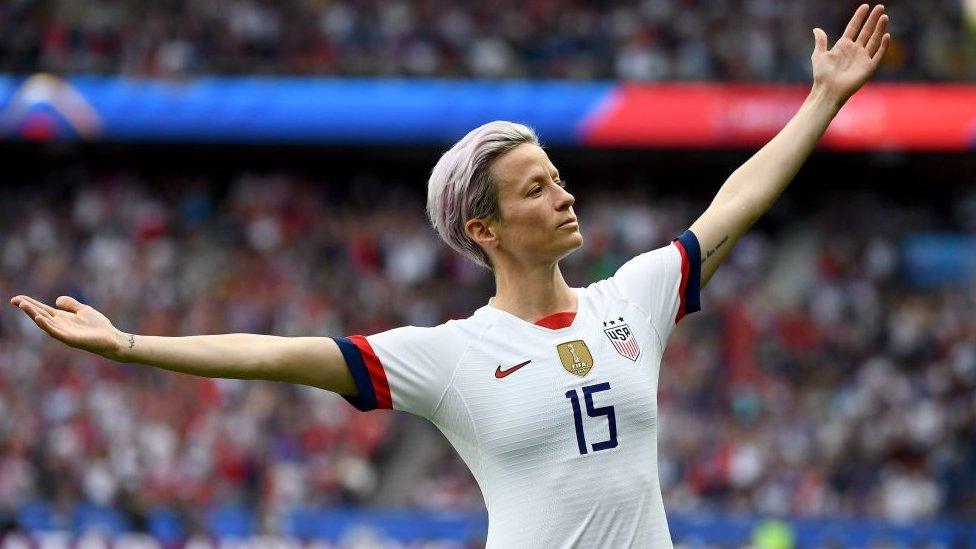
- Published10 November 2017
